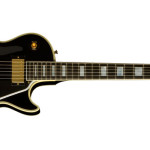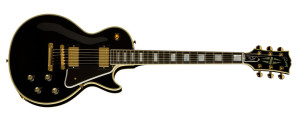 Knowing about the details of most anything can be a curse. Really. The devil truly CAN be in the details. I’ve been on the guitar tone journey for a long time and it all started when I was a young player in my early teens. I wanted to capture and emulate the exciting tones I heard from my favorite guitarists. That’s normal.
Knowing about the details of most anything can be a curse. Really. The devil truly CAN be in the details. I’ve been on the guitar tone journey for a long time and it all started when I was a young player in my early teens. I wanted to capture and emulate the exciting tones I heard from my favorite guitarists. That’s normal.
Over the years I’ve learned that the gear is only part of the equation. There is a lot of truth when people say, “Tone is in the fingers”, but we’ll get to that discussion in detail another time. It took me a long time to live by the thought and remind myself of this fact.
Fast forward to our internet age and of course there are many resources and opinions online. The internet is a GREAT place to learn about any topic. Forums and videos are fantastic resources for anyone interested in reading, viewing, and just learning about any particular topic they want. Opinions are wide and varied. But on the other hand, this can be distracting and obsessive if taken too far while doing one’s own research. I know this all too well and I even ranted about it in a previous post.
Passion in general can lead to a certain level of unhealthy obsessing. And the more passionate we are about some things, the more we want to dig into a topic and learn all we can. We want to know what’s truly best. Or maybe we are simply curious about why and how things work.
Ask me anything about first-generation Chevrolet Camaros and there is a good chance I can recite back some facts from my many years of studying books, owning the cars, and working on them since my teen years. If only there was a TV version of Jeopardy! that focused on gen 1 Camaros…One could dream. It would have been so much more lucrative had I been more passionate about something like creating software code…but I digress.
An example of my costly obsession: I always wanted a Gibson Les Paul Custom a.k.a. “Black Beauty”. I had my first one before the days of the internet. But as I began to educate myself after the internet emerged, my research online helped teach me about the differences between the models over the years. It was then I discovered various opinions about what supposedly made a “bad” Les Paul Custom versus a “good” one. There’s general disdain for a number of features…where if you’d have read the commentary, you’d be surprised that the guitars could have even lasted and still functioned as instruments over the past decades! People’s opinions can be so strong… Many of the descriptions I read seemed to indicate that the instruments themselves were only built to be semi-functional for a few years before they’d ultimately fall apart.
Throughout numerous years, Gibson Les Pauls were created with multi-laminate or “pancake bodies”, short neck tenons, used weight relief holes, neck volutes, and multi-piece necks… All were written about as if they are the worst sins imaginable on a Les Paul Guitar. What do these features do and why were they done? In short, some were for cost savings and some were for more efficient use of resources. Some were done in order to improve the design. But it turned out that if a feature deviated from its original design, the end result was always considered bad – whether it was in tone, sustain, or overall quality.
And yet, I’ve played some guitars that had all of these features (spanning the ‘70s-‘90s) and felt they sounded GREAT to me. Was it just me, or was something wrong with those internet assertions?
It was the internet world of opinions which helped ruined my love of certain instruments. Or at least it cast doubt. I found a great 1990 model Les Paul Custom during the pre-internet days and it was in great condition and played and sounded perfect to me. I loved the feel of it so I bought it…But after time (enter the Internet era) I began to worry that this model with its short neck tenon (the amount of neck attachment which is glued and extended into the body) may have made the instrument inferior compared to a proper earlier vintage model. And I also thought that the neck joint itself may be weaker and eventually fail as I had read. Never mind that I knew inside my head and heart that this wasn’t a logical thought since all Gibson Les Pauls from the early ‘70s and onward were built with short neck tenon joints – save for certain costly Gibson Custom Shop models. Having knowledge of these facts however, and again, “ruined” my love for my own 1990 model guitar.
Obsessing further, I also wondered about the use of weight relief. Was it also impacting the overall sustain of the instrument? Was I missing something that only a proper vintage or modern custom shop model could only give me?
I couldn’t get passed the details of my now inferior instrument.
So I sold the guitar.
I ended up spending over twice the amount of money on a Custom Shop version of a Gibson Les Paul Custom…But no, not just “the regular” Custom Shop Les Paul Custom model which still used a short tenon neck and was weight relieved. That wasn’t good enough…I found that the ’68 Les Paul Custom model (not normally advertised on the Gibson site), finally had the long neck tenon that I required. But now the neck profile was too fat. And I learned….GASP…. that the particular model was also weight-relieved with swiss-cheese holes inside the body cavity! Oh, the horror! I couldn’t play THAT! And guess what on top of it all? The Les Paul Custom ’68 model now ALSO used synthetic inlays (plastic) and was not genuine mother-of-pearl as found on my 1990.
So I ended up ordering a Custom Shop model based on my desired specs. It was expensive, but not as expensive as a real vintage one. I specified a 1968 model with a slim taper 1960 neck profile, one-piece body with wood sorted for lighter weight, no weight relief holes, and genuine mother of pearl block and diamond headstock inlays.
Now and FINALLY, I was SAFE from owning a “bad” Les Paul Custom!! And it took only a little over a year to receive it. I marveled at my guitar when it arrived. And it honestly is a very nice instrument.
In 2010, Gibson issued its 50th Anniversary Les Paul Custom with virtually all the same specifications I special-ordered on my 2009 – including the use of a one-piece, non-weight relieved body (but with sorted lightweight wood). I would like to think that

my special order may have influenced Gibson’s decision to issue the 50th anniversary Les Paul Custom the year later, but that’s of course me just being silly.
In hindsight, and with it being just a few years later…I realized I purchased this guitar based on internet research and by obsessing over the details and opinions of others…well, WHO CARES? The bottom line – as a playable instrument, was my new “good” Les Paul Custom now better than my “bad” 1990 model? Honestly, as a playable instrument, they were and are both great. One simply is much more expensive.
One of my favorite players from the 1980’s, Randy Rhoads, played a ‘70s Les Paul Custom. It was built using a multi-laminate “pancake” body, multi-piece neck, and a short tenon neck joint. Seemed to work really well for him. And you know what? He spent time practicing and not obsessing over every detail of his gear. And the Gibson Custom Shop even reissued that inferior instrument!
But guess what? No surprise, Randy was a much better player than I ever was or ever will be.
Same holds true for many other players who focus on playing rather than dealing with the minutia of gear they own and focusing on how it’s constructed or what sounds best.
I’m not saying now to NOT be into your gear and not read and study about things that interest you. Passion is good – in moderation. And knowledge certainly is useful. But it’s important to strike a healthy balance.
And I know that when I play better more often (i.e., practicing), my tone naturally gets better. Playing with the confidence that comes by simply practicing your instrument delivers better tone. Period. This goes back to the tone is in the fingers statement I made earlier…. Try it yourself sometime if you feel that you’re thinking you may be becoming a bit obsessive as well. And in the end, you may end up saving some money by spending time wood shedding on your instrument instead of trying to research and pursue your next piece of gear.
Exactly!
Similar things happened to me….. the internet statements can be frustrating sometimes!:
-My ’79 twin reverb 135 watts is a ‘bad’ TR because of the ultralinear transformer
-My ’87 jcm 800 is a ‘bad’ one because of the ‘unpure’ diodes on the circuit
-My les pauls also have ‘cheese holes’ or weight release…
-My California Series stratocaster is ‘half’ made in Mexico…Heresy!!
-My ampeg reverberocket is a Reissue and it doesn’t sound half as good as the original from the 60’s…
…and the list goes on and on…
As you say, passion is a good thing, but it can easily become a bad obsession…
I’ve spend too much time obsessed wit gear and reading on the net about it…spending lots of money…Now i have every pedal you can imagine, lots of guitars, amps…
Better stop obsessing about it and play a little more!
I share the same symptoms, and I know a few guitar players affected by the same disease.
1969 through 1975 has the modified long tenon not short tenon
best guitar i ever played was a regular old basswood ibanez
most important things are pups, amp, and fingers
watch the dudes with GAS spend thousands on vintage gear so they can play drone metal like a refrigerator condenser
people :)
Agreed. Playing and practicing to get those fingers working can’t be understated.